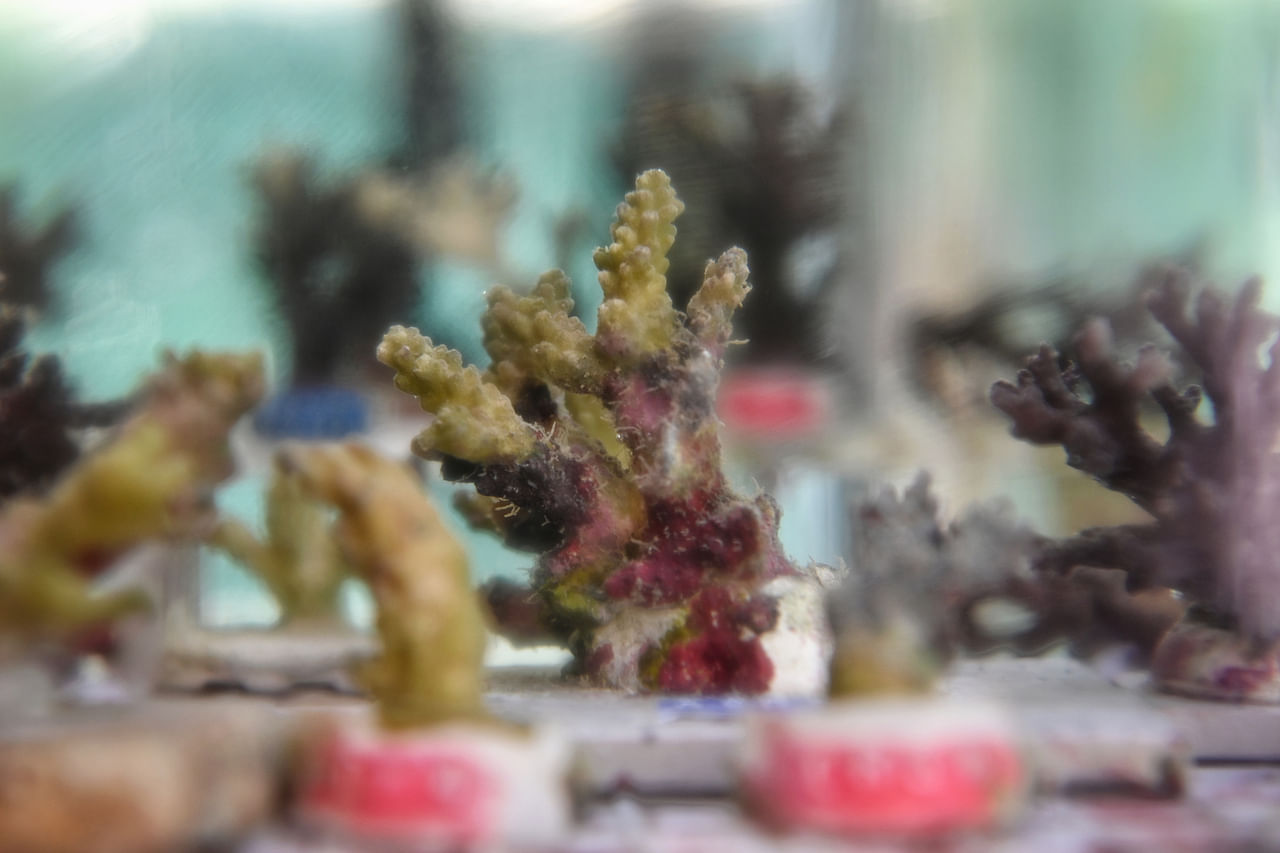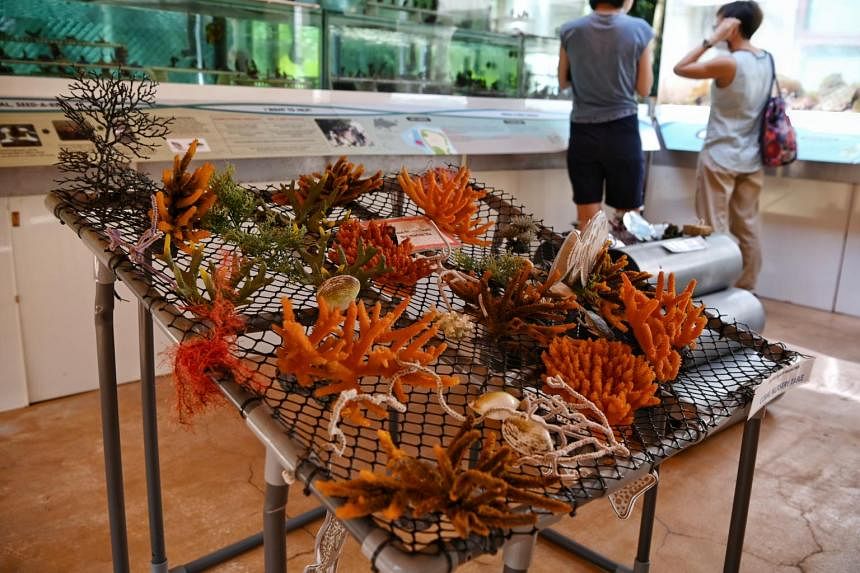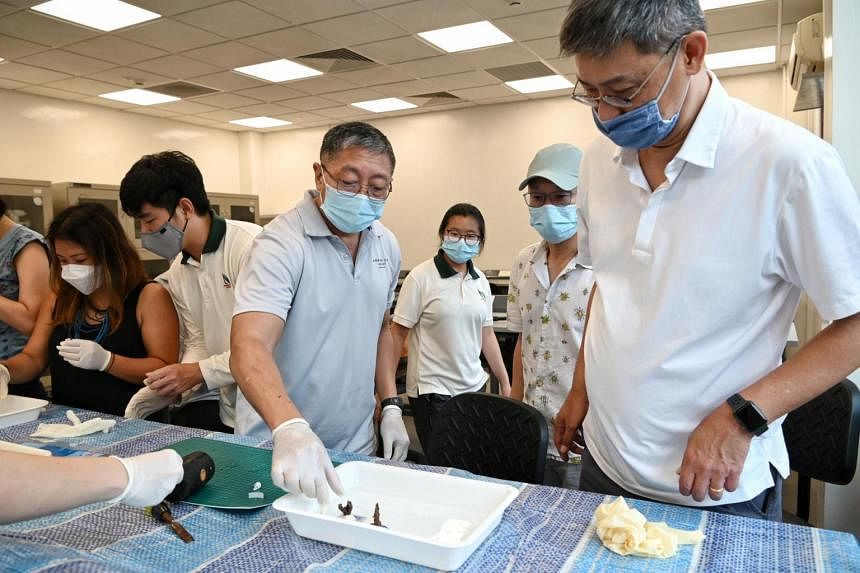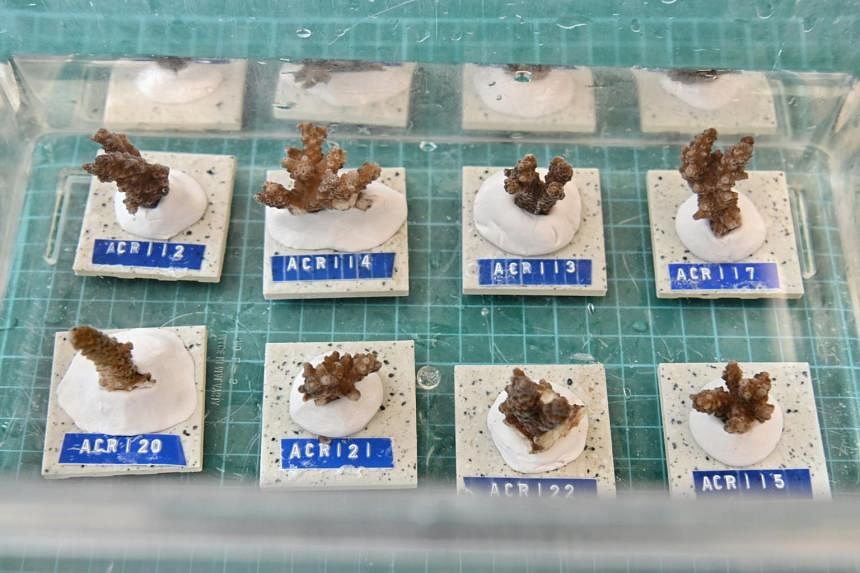SINGAPORE - A marine conservation non-profit group has donated six reef enhancement units (REU) to the National Parks Board (NParks) as part of its efforts to restore the marine habitat off Singapore shores.
REUs are knee-height stainless steel structures used as planting beds for corals grown in coral nurseries.
Marine Stewards donated these structures on Wednesday (April 13), bringing the nation's total number of REUs to 16. The donated structures are slated to be placed off the shores of Sisters' Island.
Marine Stewards has also committed to the maintenance and upkeep of the coral nursery on St John's Island for six months.
These corals will eventually be implanted into one of these artificial reef structures off Singapore's shores, including offshore islands.
On Wednesday, Marine Stewards also launched a new citizen science programme that will give recreational scuba divers the chance to monitor coral growing on these structures.
ReefX, the new coral surveying programme, will train scuba divers in basic coral reef survey techniques and documentation to capture the state of corals reefs in Singapore waters.
Dr Jeffrey Low, senior manager at NParks, said that data collected by these scuba divers can give an indication of decline or recovery of the reef.
Ms Andrea Leong, programme director at Marine Stewards, said: "For new corals to thrive on the REUs, long-term maintenance and monitoring are essential."
She added: "The new ReefX citizen science programme will mobilise even more participants committed to local reef conservation."
The programme will be divided into four modules, with the first module focused on the theory of coral conservation such as learning how to identify different local coral species.
The next module will give participants experience in maintaining and upkeeping coral at the coral nurseries on St John's Island.
Third, the divers will be asked to use their theoretical knowledge in a practice dive at Bendera Bay on St John's Island.
During this dive, participants will be asked to demonstrate aptitude at identifying life forms, photographing coral cover and videoing reef conditions.

Last, the participants will then go for a reef survey dive at the popular dive site Pulau Hantu, before having their photos of the corals uploaded to the NParks database.
There will be three course intakes. Each intake will last two months and accept a maximum of 25 people.
The first intake will start in July and the last in December.
However, due to the specialised nature of the course, only advanced scuba divers with local diving experience in low visibility waters will be considered.
For more information, go to this website to sign up.




